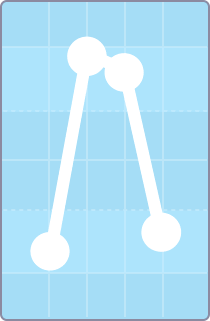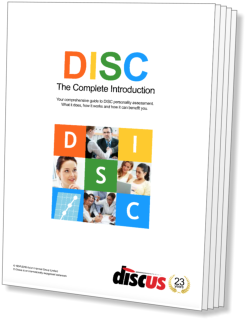High Influence and Steadiness

Influence and Steadiness are both communicative factors more oriented towards feelings and emotions than hard fact and practicalities. In combination, they describe a person oriented towards personal matters and the understanding of other people. Such an individual is confident, warm and friendly, but nonetheless is also able to extend a sympathetic ear to others and ready to help with others' problems if they can. These are the reasons why a DISC profile with this characteristic inverted 'U' shape is often described as a 'Counsellor' Profile.
Relating to Others
Of all DISC profiles, those following this general pattern are probably the most effective at relating to other people, in an all round sense. They are able to socialise easily and their gregarious natures allow them to feel at ease with people they do not know. They are often persuasive and charming, but the Steadiness in this profile means that they are also able to adopt a more open, relaxed approach when a situation demands, becoming less directly active and more receptive to the ideas and feelings of other people.
Common Abilities
The strengths of a High-I profile, as described in the preceding paragraph, relate to their abilities in the areas of communication and understanding. They fulfil supportive roles well, being understanding and sympathetic, but their more outgoing side means that they are also able to operate effectively in a social or persuasive sense. It should be noted, however, that individuals of this kind place less emphasis on matters of practicality than a purely High-S style, as this element is balanced by the less methodical Influence factor.
Motivating Factors
Antagonism, rejection and confrontation are all situations that this type will try to avoid. To use their considerable communicative powers, they will need to feel that they are operating in a favourable environment, and that those around them are sympathetic and approving. To feel completely motivated, individuals with a Counsellor Profile need to feel that they are appreciated, respected and liked by the people around them, and will sometimes go to unusual lengths to attract this attention.
Sub-traits
The Sub-traits of this type are Friendliness, Self-confidence, Patience and Persistence.
Style Card
In Style Card terms, this profile is intermediate between a Communicator and a Planner, a combined style referred to in this guide as Open. As this name suggests, this is a style strong in Openness, but combining elements of both Assertiveness and Receptiveness.

